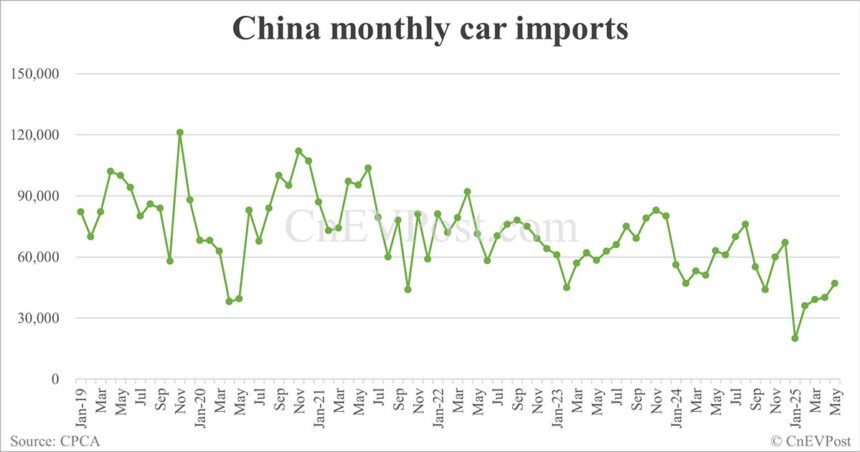China’s car imports have experienced a significant decline in the first five months of this year, with a 33 percent year-on-year decrease in imports, marking an unusual downturn for this period compared to recent years. The drop in imports is attributed to various factors, including geopolitical influences and rapid changes in the domestic market landscape.
Specifically, imports of vehicles from the US to China saw a sharp decline, with only 18,849 units imported during this period, representing a 48 percent year-on-year decrease. This trend continued in May, further emphasizing the decrease in US car imports to China.
The shift in market demand towards electrification has played a significant role in altering the structure of imported vehicle demand in China. As the country’s automotive industry continues to strengthen, the demand for gasoline-powered vehicles has decreased, leading to a decline in imported gas vehicles. This transition underscores the need for China to establish diversified import patterns to maintain a reasonable scale of imported vehicles and ensure the stability of the global supply chain.
Looking at the sources of imported vehicles in China from January to May, Japan emerged as the top importer with 70,037 units, followed by Germany, Slovakia, the US, and the UK. In May alone, China imported 47,000 vehicles, despite a 25 percent year-on-year decline. Japan remained the largest source of imports in May, followed by Germany, Slovakia, the UK, and the US.
The decline in automobile imports to China has been a consistent trend in recent years, with domestic brands and international brands’ localization efforts contributing to the decrease. The rise of China’s electric vehicle industry has also significantly impacted imported vehicle numbers. Additionally, external factors such as the US-China trade war have further influenced the import landscape.
For instance, Tesla, a prominent US EV manufacturer, halted orders for its Model S sedan and Model X SUV in China in April, potentially due to the impact of the deteriorating trade war on these imported models. While Tesla produces the Model 3 sedan and Model Y SUV locally in Shanghai, the Model S and Model X are not manufactured in China.
In a separate development, BYD registered a record 416 vehicles in Japan in May, with a significant portion being the newly launched Sealion 7 electric SUV. This highlights the growing presence of Chinese automakers in international markets and the increasing demand for electric vehicles globally.
Overall, the decline in car imports to China reflects the evolving dynamics of the automotive industry, emphasizing the need for adaptability and diversification in import strategies to navigate the changing market landscape effectively.







